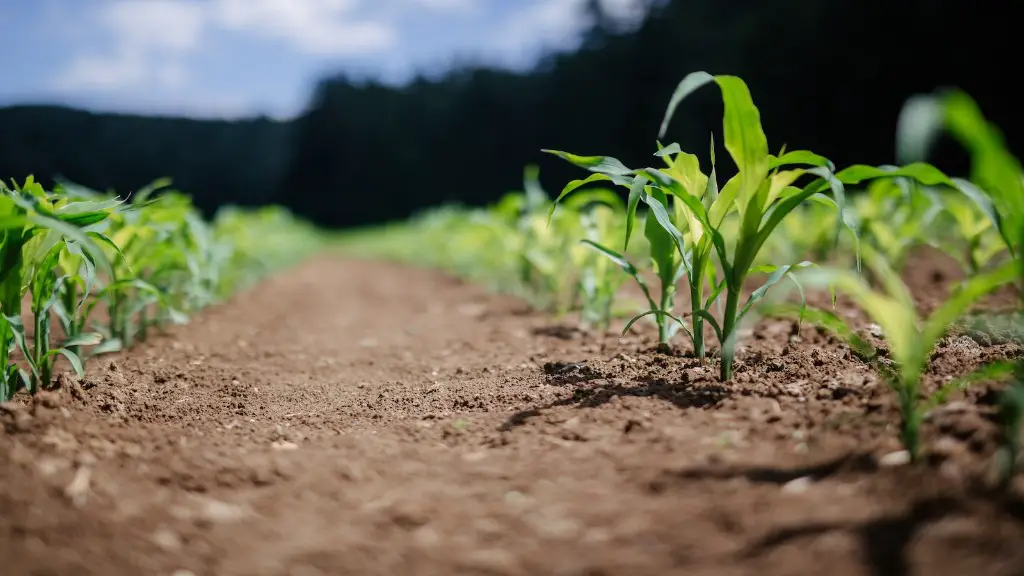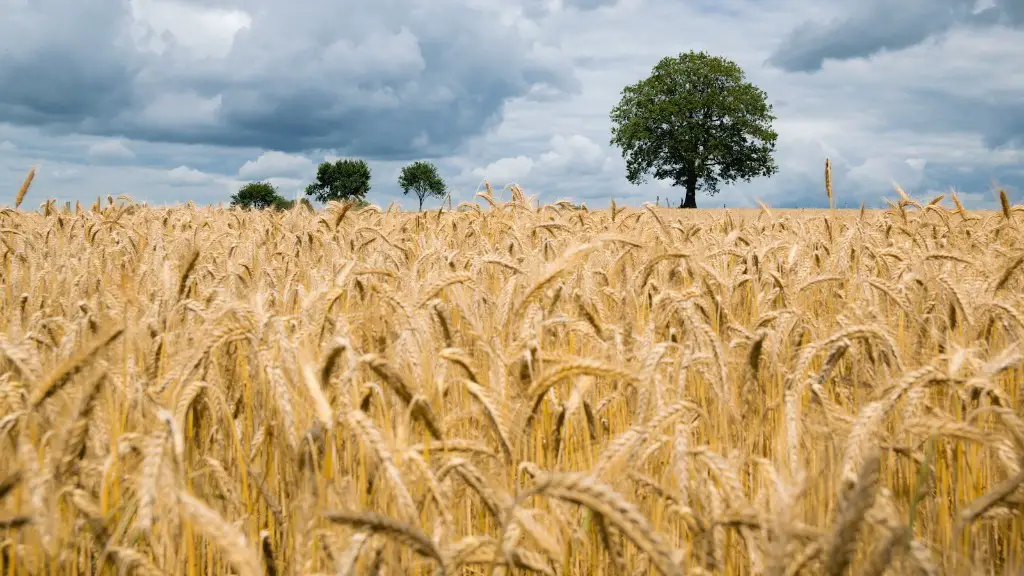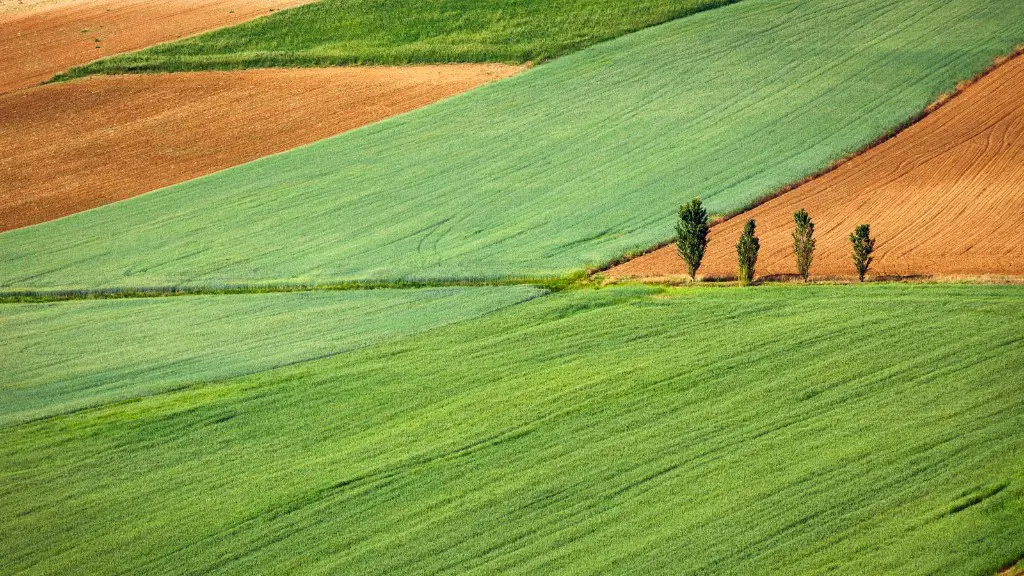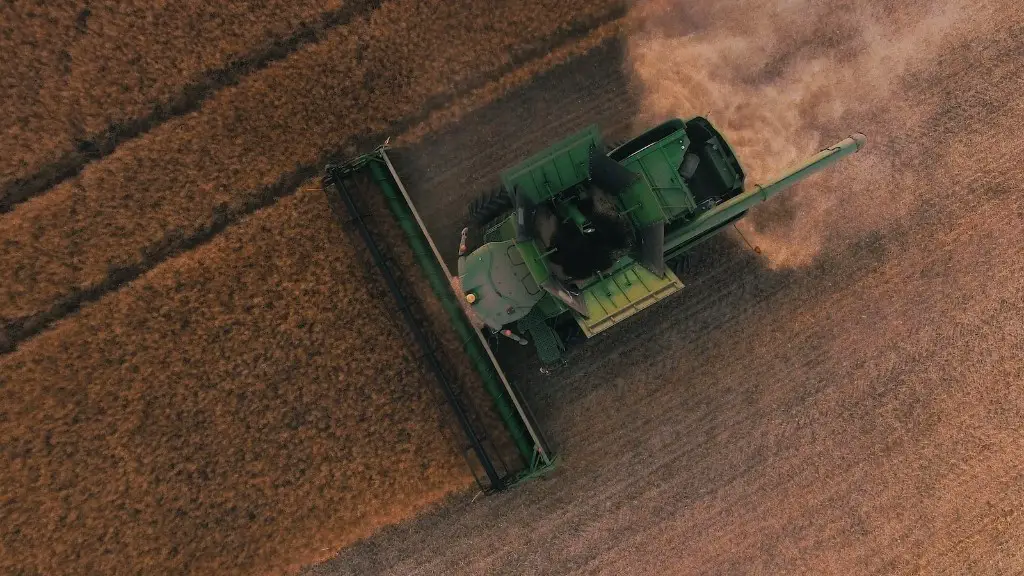The development of agriculture was one of the most important turning points in human history. Agriculture allowed for the domestication of plants and animals, which led to the development of civilizations. Agriculture allowed for the growth of cities and the rise of civilizations. Agriculture also allowed for the growth of food surpluses, which allowed for the development of trade and commerce.
The development of agriculture was the single most important factor in the rise of civilizations. Agriculture allowed for the domestication of plants and animals, which led to the development of civilizations. Agriculture allowed for the growth of cities and the rise of civilizations.
Which effect of the development of agriculture was the most significant?
The development of agriculture was a major turning point in human history. It allowed for the stabilization of a food supply, which in turn allowed for communities of people to stay in one spot and build civilizations. This led to the development of new technologies, the rise of cities, and the growth of civilizations. The impact of agriculture on human history is impossible to overstate.
Agricultural science has made great strides in recent years, due in large part to advances in technology and the development of new sources of power. Tractors have replaced draft animals and steam-powered machinery is now used in almost every stage of cultivation and livestock management. These changes have made farming much more efficient and have helped to increase food production.
Which was the most important factor in the development of agriculture by Neolithic people
Most archaeologists believe that the sudden blossoming of civilization was largely driven by environmental changes. A gradual warming as the Ice Age ended allowed some people to begin cultivating plants and herding animals in abundance. This allowed for the development of civilizations as we know them today.
The development of agriculture led to social classes in human societies for a number of reasons. First, agriculture allowed farmers and traders to accumulate wealth. This led to a class of people with more resources than others. Second, agriculture allowed for the domestication of plants and animals. This led to a class of people who controlled the food supply and had power over others. Finally, agriculture led to the development of cities and civilizations. This led to a class of people who were able to live in cities and had access to better resources than those who lived in rural areas.
What are 3 reasons why agriculture is important?
1. Agriculture is the main source of raw materials for industry.
2. It is important to international trade.
3. It plays a big role in a nation’s revenue.
4. It provides employment.
5. It’s crucial to a country’s development.
6. It can help heal the environment.
7. It goes hand-in-hand with war.
8. It can help alleviate poverty.
While the agricultural revolution led to a massive increase in the global population, it also had a profound impact on the development of cities and civilizations. Agriculture allowed for the domestication of plants and animals, which in turn led to the development of trade and commerce. Agriculture also allowed for the development of new technologies and the growth of food surpluses. All of these factors contributed to the growth of cities and civilizations.
What is the main impact of agriculture?
There is no denying that agriculture is the leading source of pollution in many countries. Pesticides, fertilizers and other toxic farm chemicals can poison fresh water, marine ecosystems, air and soil. They also can remain in the environment for generations. While agricultural pollution is a serious problem, it is important to note that there are ways to reduce its impact. One way is to carefully choose the products you use on your farm. Another is to adopt sustainable farming practices that minimize the use of harmful chemicals.
Agriculture definitely has had a hand in a large number of environmental issues that have contributed to environmental degradation. Some of these issues include climate change, deforestation, biodiversity loss, dead zones, genetic engineering, irrigation problems, pollutants, soil degradation, and waste. However, it’s important to remember that agriculture is also vital to our survival as a species. So while we need to be aware of the problems it causes, we also need to be careful not to demonize it.
What was the impact of agriculture in the development of human society
When early humans began farming, they were able to produce enough food that they no longer had to migrate to their food source. This meant they could build permanent structures, and develop villages, towns, and eventually even cities. Closely connected to the rise of settled societies was an increase in population.
The main physical factors affecting agriculture are topography, soil, and climate. Topography can affect land cultivation difficulties, soil erosion, and poor transport networks and facilities. Climate can affect the suitability of the land for certain crops, and the availability of water. Soil can affect the suitability of the land for certain crops, and the availability of nutrients.
What is the most important factor in agriculture?
While it is essential for agricultural productivity, soil fertility is often degraded by unsustainable farming practices. This is a major problem in many parts of the world and results in decreased crop yields, loss of livelihoods, and increased food insecurity.
There are a number of ways to improve and maintain soil fertility. These include using organic matter, practicing crop rotation, and minimizing soil disturbance. Additionally, proper irrigation and drainage, as well as the use of cover crops, can help to improve soil health.
agriculture is the foundation of human civilization. it allowed for the growth of cities and the rise of civilizations. it also allowed for the growth of food surpluses, which allowed for the development of trade and commerce. agriculture has played a vital role in the development of human societies.
What impact did the agricultural revolution have on humanity
The agricultural revolution was a period of time when humans began to transition from a hunter-gatherer lifestyle to one of farming and raising crops. This transition had a number of consequences for human society, both good and bad. On the one hand, it allowed for a more stable food supply and the rise of civilizations. On the other hand, it led to increased inequality, as those who controlled the land became more powerful, and to the spread of diseases from animals to humans.
Agriculture is one of the most important aspects of a country’s economy. It provides food and raw materials, and gives job opportunities to a large section of the people. It is therefore vital to the overall health of a country’s economy.
What were 2 benefits of the agricultural revolution to human society?
The Agricultural Revolution was a period of increased agricultural productivity that took place during the 18th and early 19th centuries. This period saw experimentation with new crops and new methods of crop rotation, as well as advances in irrigation and drainage. These new techniques led to stronger crops and better agricultural output.
From the subsistence farmer of early civilizations to the sophisticated commercial farmer of today, agriculture has been an important part of human life and economy. Agriculture not only provides food, clothing and shelter but also plays a vital role in the economic development of a country.
The agricultural sector is an important contributor to the gross domestic product (GDP) of most countries. It provides employment for a large percentage of the workforce, especially in developing countries. Agriculture also provides raw materials for industries such as textile, paper and leather.
In recent years, there has been a shift away from traditional farming practices in many parts of the world. This has led to an increase in the use of modern technology and methods in agriculture. This has helped to improve productivity and efficiency, and has made it possible to meet the demands of a growing population.
Despite the advances made in agriculture, there are still many challenges faced by the sector. These include climate change, water scarcity, soil depletion and the high cost of inputs. However, with the right policies and investments, the agricultural sector has the potential to meet the challenges and play an important role in ensuring food security and reducing poverty.
Warp Up
The development of agriculture was so important because it allowed for the domestication of plants and animals, which led to the development of civilizations. Agriculture allowed for the growth of cities and the rise of civilizations.
The development of agriculture allowed for the domestication of plants and animals, which led to the development of civilizations. Agriculture allowed for the growth of cities and the rise of civilizations. It also allowed for the growth of food surpluses, which allowed for the development of trade and commerce. Agriculture allowed for the growth of civilizations and the rise of cities, and it was an essential step in human history.





